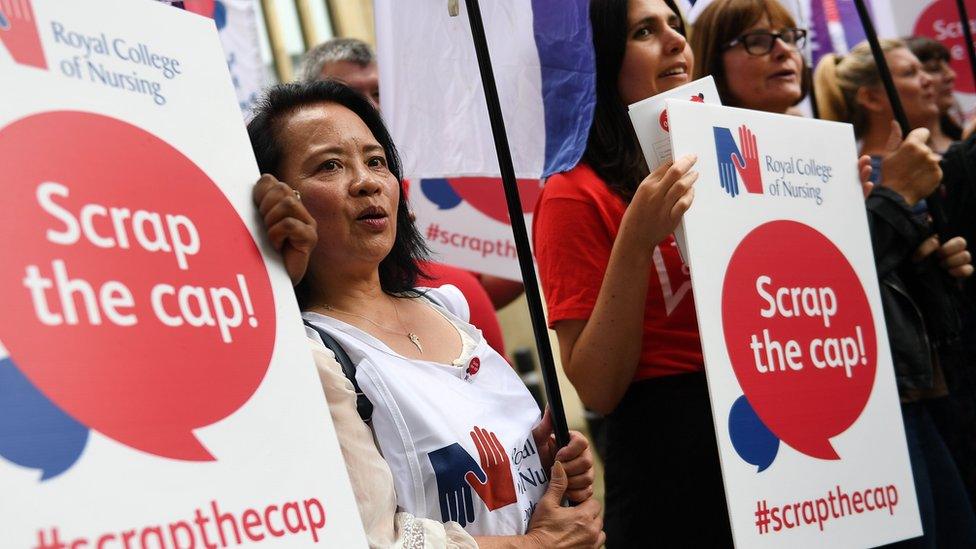Deciphering the public sector pay hints
- Published

Nurse, social worker, teacher, doctor - pretty much any public sector worker in England, Wales and Northern Ireland would have been justified in feeling a bit more chipper this morning, had they had time to listen to comments from the defence secretary or the transport secretary, both hinting that the limit on their pay rises might be about to come to an end.
They might been further bolstered by comments after Prime Minister's Questions, if they had been watching the news this afternoon, when Number 10's spokesman suggested that although it was important still to balance the books, the government understands people are "weary" after years of the limit.
And, in line with Michael Fallon and Chris Grayling's comments, the government is ready to listen to the case to "scrap the cap" - bringing a potential end to the policy that was designed to save £5bn for the public purse by 2020.
By teatime however, after the Treasury had slightly less enthusiastically said they were "open to discussion", that nurse, social worker, teacher or doctor had slightly less cause for feeling optimistic about a bigger pay rise any time soon.
Number 10 had perhaps not changed, but certainly tweaked, their tune - saying when asked repeatedly that the policy has not changed, the independent pay review bodies will report in due course and the government will consider their proposals.
So far, so confusing. Neither Number 10 nor the Treasury, who it's suggested were not entirely thrilled with the suggestion, are ready by the end of this political day to be able to make such a big change, or to give Labour such a big victory.
The problem for them however is not just what appears to be a changing mood among some voters, but also very public hints by cabinet members that the cap, becoming painful for some as inflation starts to lift, could disappear along with Theresa May's majority.